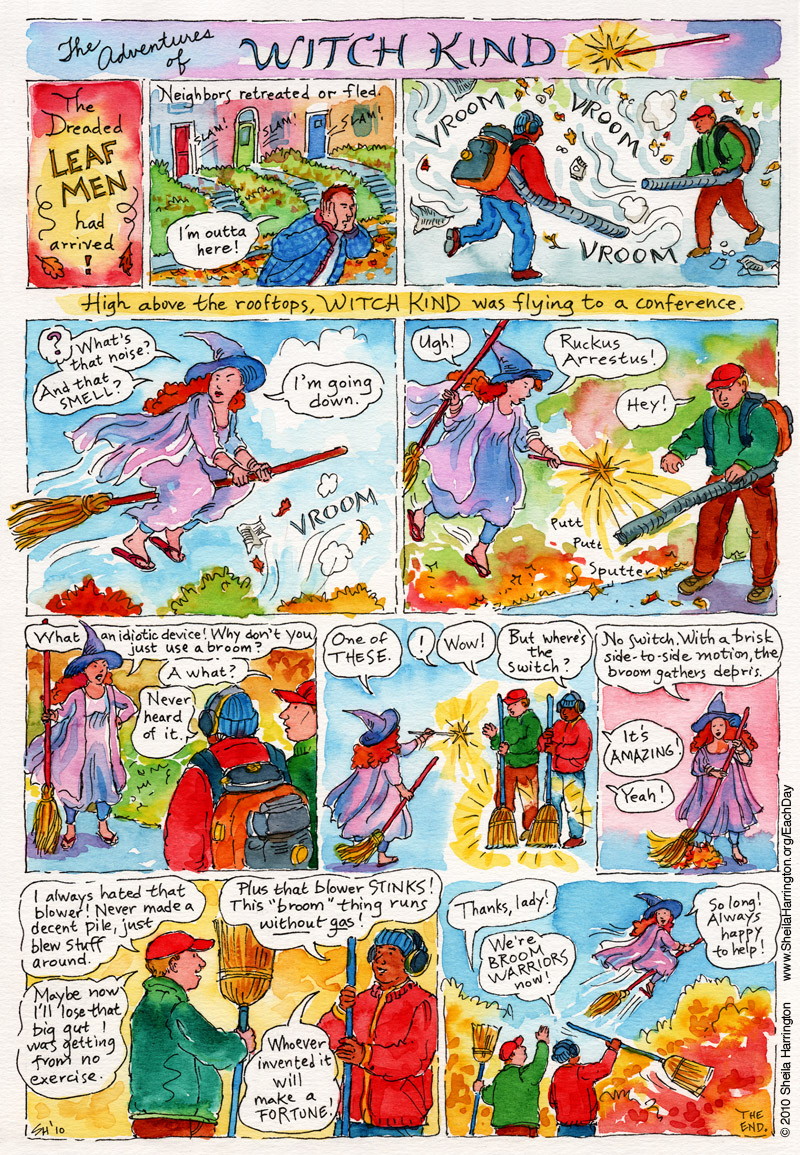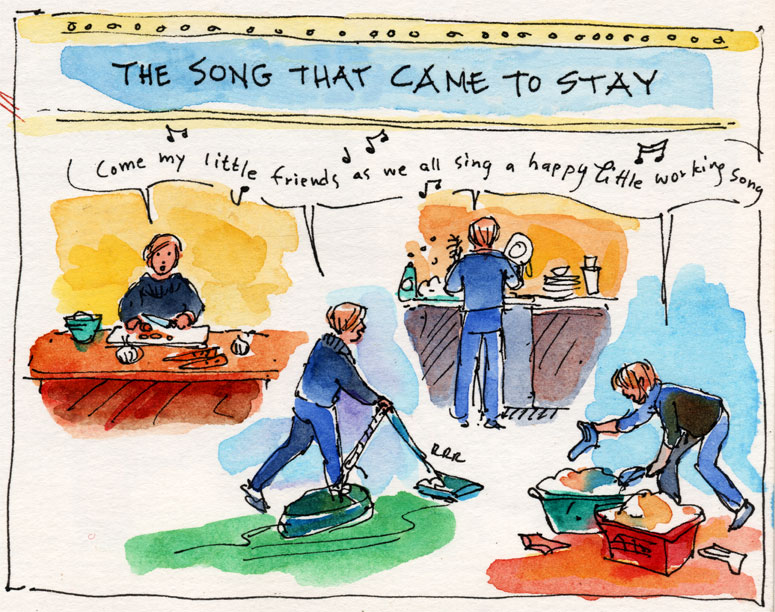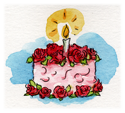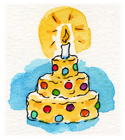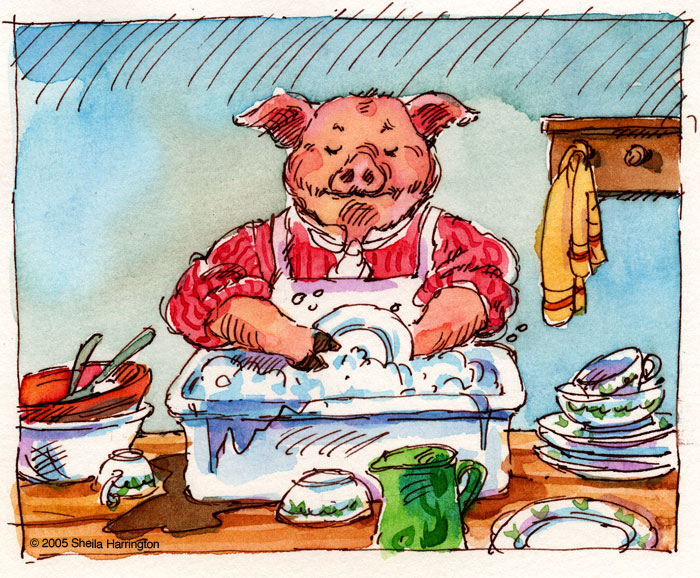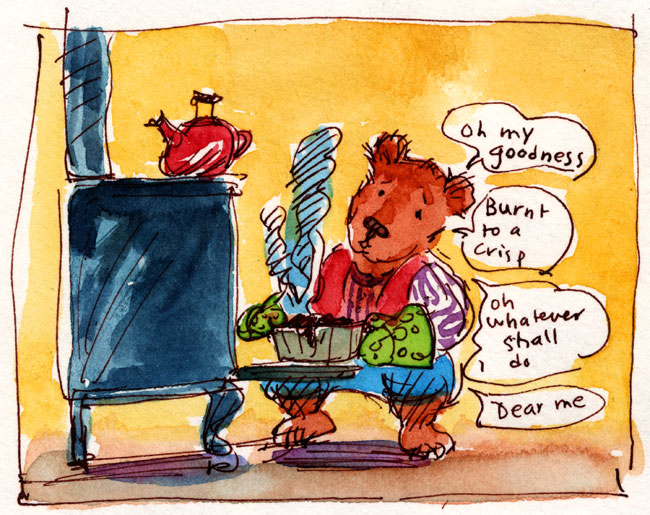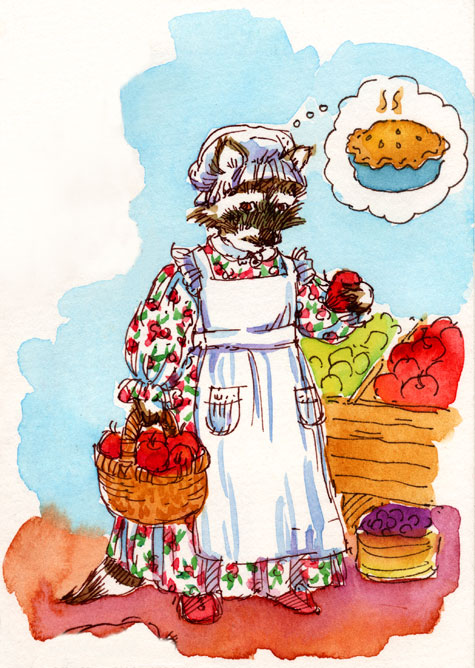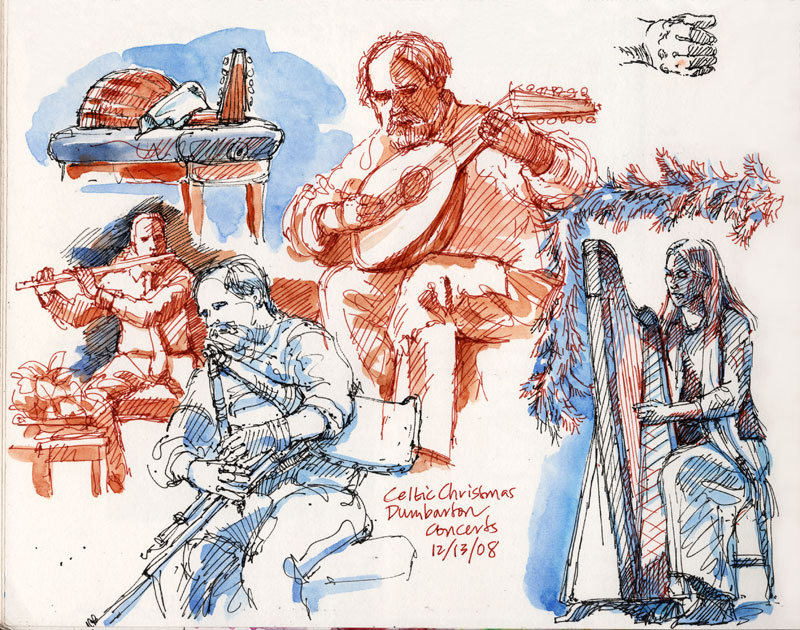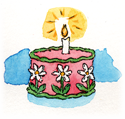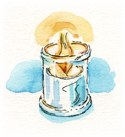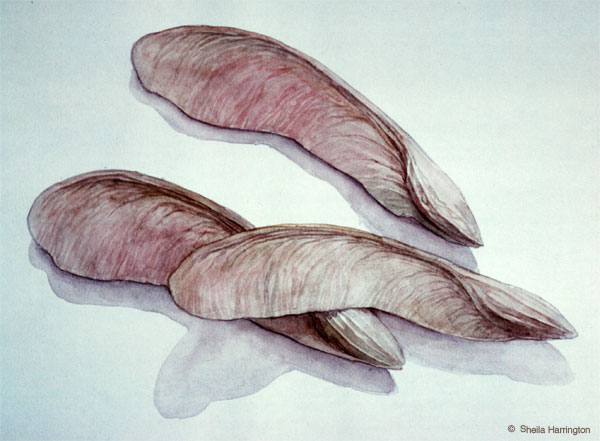Month: November 2010
Advent I: I Heard an Angel Singing
This year the First Sunday of Advent happens to fall on the birthday of visionary poet and artist William Blake (1757-1827). And so it seems appropriate to post this poem, with its manifestation of hope in the midst of bleak reality.
I heard an Angel singing When the day was springing, “Mercy, Pity, Peace Is the world’s release.” Thus he sung all day Over the new mown hay, Till the sun went down And haycocks looked brown. I heard a Devil curse Over the heath and the furze, “Mercy could be no more, If there was nobody poor, And pity no more could be, If all were as happy as we.” At his curse the sun went down, And the heavens gave a frown. Down pour’d the heavy rain Over the new reap’d grain … And Miseries’ increase Is Mercy, Pity, Peace.—William Blake
Happy Little Working Song
Sometimes we put this piece of music on the CD player to jump-start our Saturday chores. Really, it ought to come with a warning label. I’m still singing it hours later when I’m walking the dog, or trying to write a letter.
…and Washing Up
Giving Thanks
Baking…
Planning…
Celtic Christmas
Today is the feast day of St. Cecilia, my saint-name-day (Sheila being the Irish form of Cecilia). St. Cecilia is the patron saint of music, a fact that has always pleased me—irrationally, considering I have no musical talent beyond the ability to sing lullabies relentlessly for hours to restless children.
Anyway, in honor of St. Cecilia, I post this tribute to a wonderful holiday concert that my husband and I attend every year with a group of friends: Celtic Christmas, at Dumbarton Church in Washington, DC. This concert is difficult to describe. It takes place by candlelight in a beautiful old church in Georgetown, and includes traditional seasonal music, unusual obscure pieces, and original compositions, which vary from year to year. The incredibly diverse Linn Barnes plays lute, guitar, banjo, harp-guitar, and Uillean pipes. Allison Hampton plays Celtic harp as if descended from on high to share the music of the spheres. Their performances are heightened and deepened by those of amazing flutist Joseph Cunliffe and percussionist Steve Bloom.
Pieces are interspersed with Barnes’ anecdotes both serious and humorous providing historical background (here is a man serious about music). Other pieces are accompanied by Robert Aubry Davis reading evocative seasonal poetry and prose that he researches especially for the concert (here is a man serious about literature).
This annual event sweeps us into the spirit of a joyful yet poignant Christmas. We depart expecting to step out into softly falling snow, listening for sleigh bells, the call of the heavenly host, and the distant howl of a wolf.
Throw Yourself Like Seed
A poem, and a watercolor, for late autumn.
Shake off this sadness, and recover your spirit sluggish you will never see the wheel of fate that brushes your heel as it turns going by, the man who wants to live is the man in whom life is abundant. Now you are only giving food to that final pain which is slowly winding you in the nets of death, but to live is to work, and the only thing which lasts is the work; start then, turn to the work. Throw yourself like seed as you walk, and into your own field, don’t turn your face for that would be to turn it to death, and do not let the past weigh down your motion. Leave what’s alive in the furrow, what’s dead in yourself, for life does not move in the same way as a group of clouds; from your work you will be able one day to gather yourself.—Miguel de Unamuno
On the Vanity of Earthly Greatness
Today, on the birthday of humorist Arthur Guiterman (1871-1943), I post one of his poems, along with a monument to a mouse.
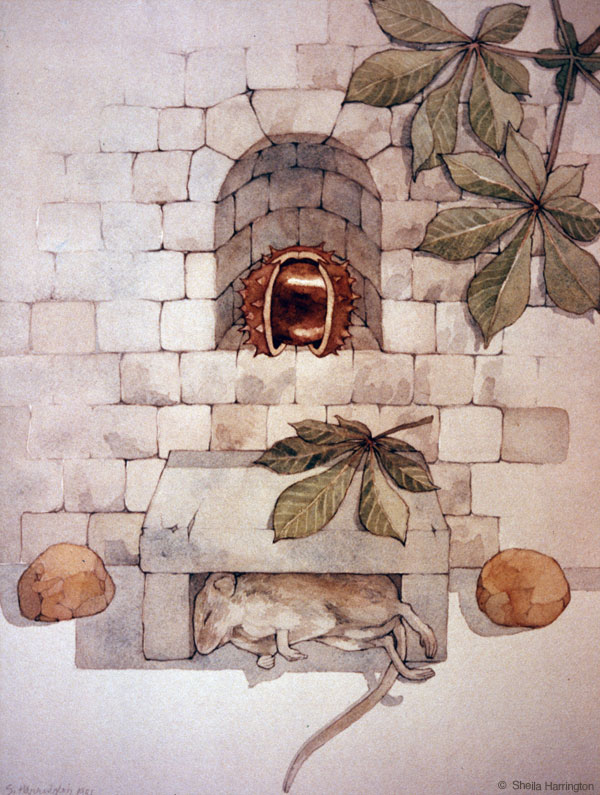
The tusks which clashed in mighty brawls
Of mastodons, are billiard balls.
The sword of Charlemagne the Just
Is Ferric Oxide, known as rust.
The grizzly bear, whose potent hug
Was feared by all, is now a rug.
Great Caesar’s bust is on the shelf,
And I don’t feel so well myself.

